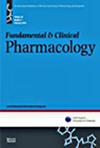Repurposing Asparaginase Therapy to Target Cisplatin-Resistant Cancer Cells
Abstract
Background
Cisplatin and its derivatives remain a cornerstone in the treatment of solid malignancies. Resistance is a major factor limiting their clinical utility.
Objectives
In the present study, we set out to interrogate therapeutic approaches to target cisplatin-resistant cancer cells. We focused on therapies exploiting metabolic pathways that are altered in drug-resistant cells. We sought to find an existing therapy that has monotherapy efficacy against cisplatin-resistant cancer cells that can also re-sensitize to cisplatin.
Methods
We used lung and ovarian cancer cell lines with acquired resistance to cisplatin together with drug sensitivity assays, conducted both with monotherapies and cisplatin combinations.
Results
We show that cancer cell lines with acquired resistance to cisplatin have altered levels of enzymes involved in glutamine metabolism, which can result in differential sensitivity to targeted agents. We show that expression of one of these enzymes—the glutamate-cystine antiporter SLC7A11, up-regulated 6-fold in a cisplatin-resistant lung cancer cell line—has potential prognostic significance in lung cancer but not ovarian cancer. After identifying a common dependency of cisplatin-resistant cancer cells upon extracellular glutamine, we then evaluate the utility of the long-standing anti-leukemic therapy asparaginase (ASNase)—which possesses both asparaginase and glutaminase activity—as a potential approach. We show ASNase preferentially inhibits the proliferation of cisplatin-resistant cancer cells and can potentially re-sensitize these cells to cisplatin.
Conclusions
Our results underpin the prevalence of altered metabolism in cisplatin-resistant cells and highlight the potential utility of re-purposing ASNase to target these cells, warranting further investigation.


 求助内容:
求助内容: 应助结果提醒方式:
应助结果提醒方式:


